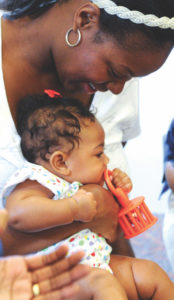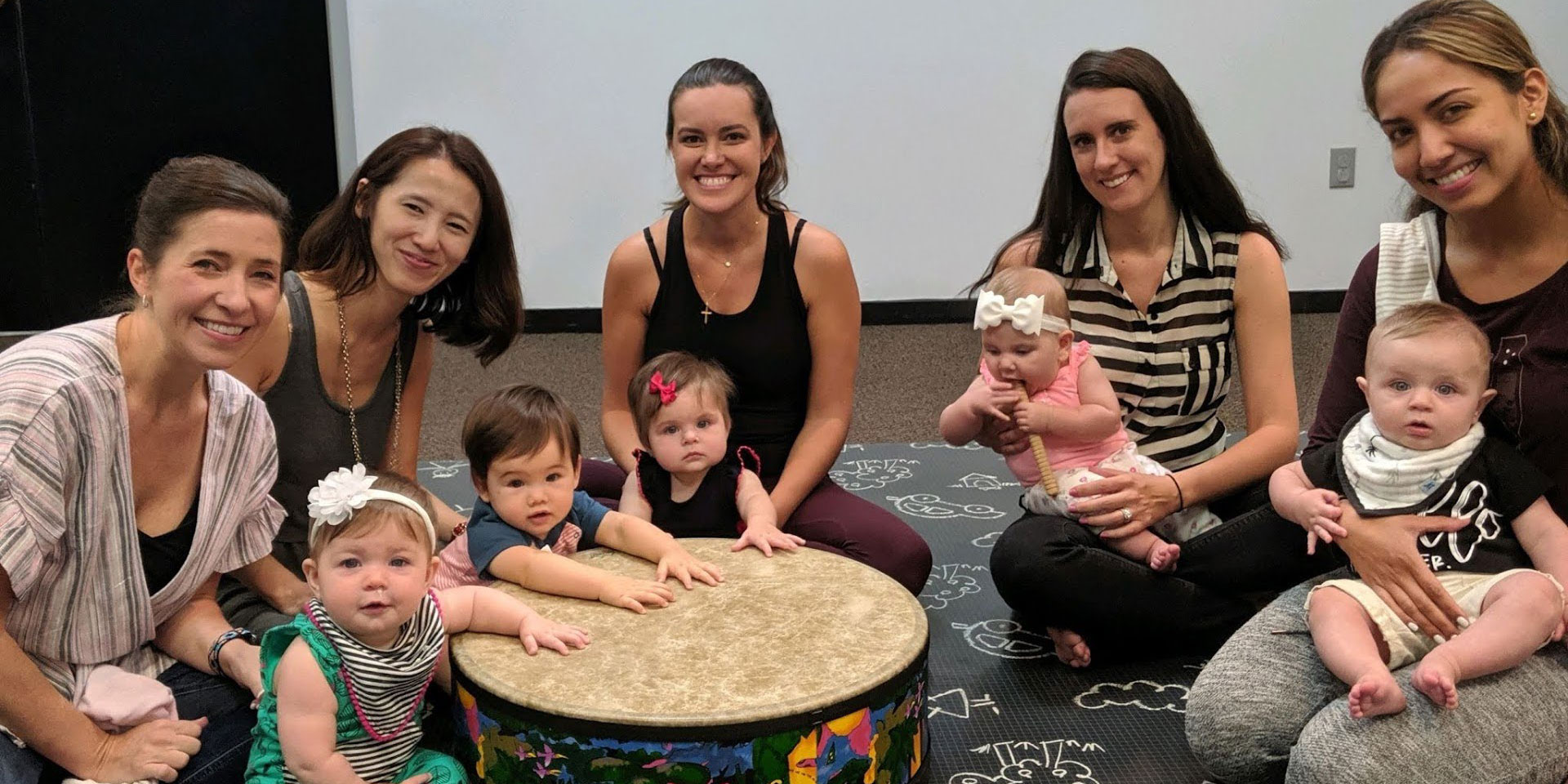Babies love to sing! When a parent sings to their baby they share an intimate connection that validates relationship, strengthens emotional bonds, increases socialization, and aids in both language and pitch development.
A common question is at what age should music exposure begin? Quite honestly, before a child is born! That’s right. The very best sound a parent can provide is the sound of their voice, singing to their baby. “Siri “and “ Alexa” cannot provide the emotional connection that an infant will have when they hear the sound of their mother or primary caregiver singing to them. The parental voice resonates with their tiny soul, as it is the sound that was the source of safety, familiarity, and comfort for so many months pre-birth.

At 16 weeks of pregnancy, a tiny infant is actively listening to their mother’s voice. Throughout the earliest years of development, learning is enhanced through ritual and repetition. It engenders familiarity which not only provides security but allows them to predict language and sound. Recent research in early childhood development has revealed that the most powerful connection parents have with a newborn is through voice and purposeful touch. Add “skin to skin” contact while singing and further enhancement to the neural receptors in the brain occurs. Skin-to-skin contact is so important hospitals are implementing this practice with both moms and dads immediately after birth.
A powerful hormone, Oxytocin ( nicknamed the cuddle or “feel good” hormone) is released in the brain while singing – producing a re-lease of good feelings within the singer- and transferred to the baby. Why is the parent/ caregiver voice preferred over recorded music? It is responsive to baby‘s cues — recorded music is a constant stimulus that is not responsive to a baby’s cues. While a parent is singing, they have the ability to respond to their infant’s cues notably through smiles and eye contact, but through providing a purposeful touch ( massage or rhythmic pats), you can promote a powerful exchange and validate your infant’s voice by echoing the sounds they make. Think of it as a ping-pong match-baby serves up a sound and caregiver echos it back. Vowel sounds, coos, b and d sounds sung also help to reinforce the power of using the voice, which will promote language development as well as pitch. Language is closely linked to music and it is no surprise that our earliest learning and memorization comes through song learning- i.e. the Abcs’ or Twinkle Little Star ( sung to the same melody). A group of Dartmouth researchers have discovered that the brain’s auditory cortex, the part that handles information through hearing, holds onto musical memories.
Music has been shown to be a powerful retention tool and integrates both right and left brain hemispheres. Our earliest memories are formed with musical connections and can span a lifetime. Alzheimers patients have no problem remembering their favorite songs, which can be due to the strong emotional and behavioral connection they have to these memories. Research has revealed that musical memories are often preserved in Alzheimer’s disease and other types of dementia because key brain areas linked to musical memory are relatively undamaged by the disease. A ritual of singing to your infant combined with purposeful touch has a plethora of benefits to both parent and child and establishes feelings of well-being deep within the brain. To coin an old Carpenters song- “Sing a song, make it simple to last a whole life long”!

Singer/ Songwriter Allison Wilkins, Owner/ Director of Allisongs for Tots, offers Music Together classes for infants through age 6 and their parents and caregivers.
For more info : www. AllisongsforTots.com



